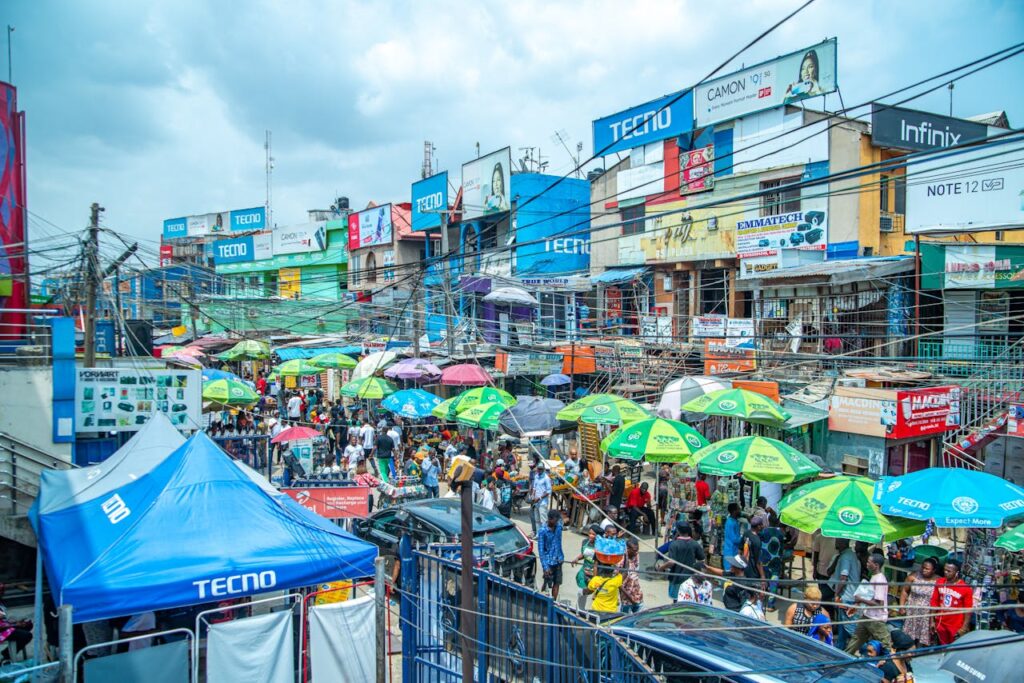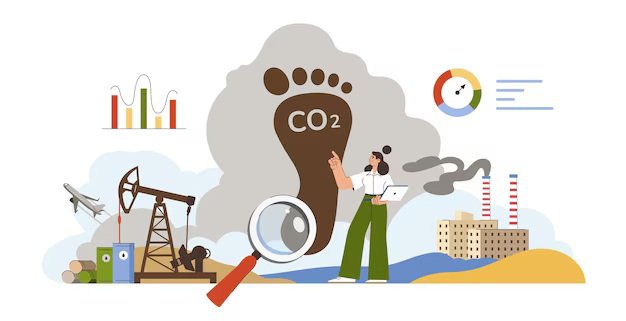How Lagos Can Become an Eco-Friendly City: Practical Solutions for Sustainability in Nigeria’s Largest Urban Center
To help Lagos, Nigeria, evolve into an eco-friendly city is a vision close to my heart. As someone who calls this city home, I know the daily realities that come with its rapid growth: the traffic congestion, the thick air on busy streets, and waste issues. I also know the joy and vitality Lagos brings, the spirit of a city that’s alive with people, culture, and potential. With over 21 million people, Lagos is Africa’s largest city, and as it grows, so does its environmental footprint. Yet, our challenges also present powerful opportunities to become leaders in urban sustainability.
What follows is a guide on transforming Lagos into a green, sustainable city, blending firsthand stories, insights from experts, and successful examples worldwide. Whether tackling waste, improving public transport, integrating renewable energy, expanding green spaces, or rallying the community, each section offers realistic solutions for a more sustainable Lagos.

In This Article
- Waste Management: Rethinking Lagos’ Approach to Recycling
- Green Transportation: Addressing Traffic and Emissions in Lagos
- Renewable Energy: Harnessing Lagos’ Natural Resources
- Green Spaces and Urban Agriculture: Making Lagos Greener
- Community Engagement: Educating and Empowering the Public
- Conclusion: Taking Steps Toward a Greener Lagos
Waste Management: Rethinking Lagos’ Approach to Recycling
Waste in Lagos: An Everyday Reality
It’s no surprise to anyone living here that waste is a huge issue. Lagos produces roughly 13,000 metric tons of waste every single day. Some areas have community collection systems, but so much waste ends up in places it shouldn’t: open drains, roadsides, or simply burned in the open, sending harmful smoke into the air we breathe.
Practical Steps: How Recycling Can Start at the Grassroots Level
I recently joined a community cleanup at Tarkwa Bay Beach, where we worked alongside locals to pick up plastic waste left on the shore. Seeing the impact of our efforts and how much cleaner the beach looked afterwards reminded me that even small actions matter. Lagos has programs like Lagos Recycles (run by the Lagos State Waste Management Authority or LAWMA), which places recycling drop-off points in communities. These initiatives are a good start, but could go much further if recycling facilities became more accessible and more people understood what can be recycled and how.
For many Lagosians, the real barrier to recycling is simply knowing how to get started and what steps to take. Conversations with neighbours and friends show that even those who want to recycle often don’t know where to begin.
Mr. Oladimeji Oresanya, the former Managing Director of LAWMA, once said, “Lagos has immense potential to lead Africa in sustainable waste management if we can build a robust, community-driven recycling culture.” Recycling is not only about reducing waste; it’s about turning waste into economic opportunity, creating jobs and generating new products. There are even local artisans who upcycle materials like glass bottles into unique artwork and decorations, transforming trash into treasure.
Steps Forward for Lagos Waste Management
- Incentivise Recycling: Collaborating with private companies could create reward systems for recycling; imagine discounts or points people could earn by turning in recyclables.
- Education Campaigns: Schools, communities, and neighbourhoods could benefit from campaigns that teach people how to sort and recycle waste. Children are especially open to learning new habits, and these can have a lasting impact.
- Public-Private Partnerships: Working with businesses to adopt eco-friendly packaging and expand recycling facilities would make a significant difference.
Green Transportation: Addressing Traffic and Emissions in Lagos
The Traffic Challenge We All Know Too Well
Lagos is famous for its traffic jams. It’s not just a time drain but an environmental one as well. Studies show Lagosians spend an average of three hours per day in traffic. That time comes at a cost, not just to productivity but also to our health and air quality, as car emissions worsen air pollution and increase respiratory issues.
Practical Steps: Expanding Public Transport and Car-Free Days
The Bus Rapid Transit (BRT) system, launched a few years back, has brought some relief to the city’s congestion by offering a more organised, affordable option for commuters. Expanding this system, adding more routes, and improving service frequency could help reduce congestion on Lagos’ roads and make travel more affordable. There’s also a tremendous opportunity to introduce electric buses, which would cut down on fuel use and emissions.
For me, a great solution has been carpooling. I started sharing rides with a few friends and neighbours who work in the same part of town, and it has cut down both travel costs and my personal carbon footprint. We’ve even used a carpooling app to connect with other people travelling in the same direction. I believe carpooling could make a real impact if more people embraced it.
Learn More: 10 Eco-Friendly Projects to Build a Sustainable Community
Case Study: Kigali, Rwanda’s Bicycle Initiative
Kigali’s innovative approach to urban transportation is inspiring. The city has dedicated lanes for bicycles and motorbikes, creating zones where only non-motorised vehicles are allowed. This approach has reduced congestion and encouraged walking and biking. Implementing something similar in Lagos neighbourhoods could ease traffic congestion and improve air quality.
Steps Forward for Green Transport
- Subsidise Electric Vehicles (EVs): Offering subsidies would make EVs more affordable, helping reduce fuel consumption and emissions.
- Expand Walkability: Adding more sidewalks and pedestrian zones would make walking safer and more practical, encouraging more people to leave their cars behind.
- Promote Car-Free Days: Instituting car-free days in busy districts could help showcase the benefits of less traffic and lower pollution.
Renewable Energy: Harnessing Lagos’ Natural Resources
Lagos’ Struggle with Energy Consistency
Power outages and reliance on diesel generators are a part of daily life in Lagos. The national power grid is unreliable, which means people have to turn to generators that are both expensive and polluting. With Lagos’ long sunny seasons, the city is perfectly positioned to tap into solar power, which could greatly reduce its reliance on diesel.
Solar Power as a Realistic Solution
A few years ago, I switched to a small solar inverter for my home, and it made an immediate difference. Not only did I see my electricity costs drop, but my reliance on my generator dropped significantly. It’s a change I encourage more people to consider, especially because solar energy is a powerful, renewable resource that can help offset the need for traditional power.
According to Professor Abubakar Sani, an energy specialist at the University of Lagos, “A focus on solar energy not only reduces pollution but also creates jobs and economic benefits.” Solar energy doesn’t just provide power—it also opens up jobs in installation, maintenance, and production. If Lagos sets an example for other cities, it could help create a renewable energy movement across Nigeria.
Steps Forward for Renewable Energy in Lagos
- Subsidise Solar Equipment: Government-backed subsidies could make solar power equipment more affordable, increasing its reach.
- Rooftop Solar Installations: Introducing policies that mandate rooftop solar for new commercial and government buildings would create a foundation for solar energy reliance.
- Solar Micro-Grids: Installing micro-grids for remote communities would provide power to those not yet connected to the grid, reducing their reliance on diesel.
Green Spaces and Urban Agriculture: Making Lagos Greener
Why Green Spaces Matter for City Life
As Lagos has expanded, the number of green spaces has dwindled, which affects air quality and temperatures in a city that is already warm year-round. Green spaces don’t just beautify; they act as natural air purifiers, reduce temperatures, and provide places for recreation and relaxation. I remember my first visit to Lekki Conservation Centre, a lush oasis in the middle of urban sprawl. It was a peaceful reminder of the balance nature provides.
Urban Farming and Community Gardens
Urban farming is a growing movement in cities worldwide, and Lagos is no exception. I once volunteered at a small urban farm in Lekki, where locals were growing vegetables like tomatoes, peppers, and greens. This experience made me realise how urban farming could help with food security and lower our dependence on imported produce.
Case Study: Singapore’s Vertical Farms and Green Roofs
Singapore is famous for its dedication to green spaces, including vertical gardens and rooftop farms. These green spaces make urban areas cooler, improve air quality, and add to the food supply. This could be a model for high-density areas in Lagos, where greenery and agriculture could help improve the urban landscape.
Steps Forward for Green Spaces and Urban Agriculture
- Encourage Rooftop Gardens: Promoting rooftop gardens in commercial and residential buildings would create more green space and cool down urban temperatures.
- Support Community Farms: Government support for community farms would make fresh food more accessible, while also creating a sense of community.
- Expand Parks and Public Spaces: Investing in more parks and green areas would improve residents’ quality of life and help manage temperatures in urban zones.
Learn More: What Is Eco-Friendly? Key Practices, Global Examples, and Future Innovations
Community Engagement: Educating and Empowering the Public
The Role of Community in Sustainable Change
The journey to a sustainable Lagos needs the support of its people. Change will be lasting only if the community understands the importance of sustainable practices and is empowered to take part in them. I once attended a recycling workshop held at a local community centre in Yaba, and I was impressed by the turnout. People of all ages came to learn how to sort and recycle waste, a reminder that people genuinely care—they just need guidance and support.
Educating the Next Generation
If we hope to build a greener Lagos, it’s essential to start with the younger generation. Environmental education should be introduced in schools so that kids grow up learning about the importance of recycling, conserving energy, and taking care of green spaces. Children who develop these values early will carry them into adulthood, and they often inspire change within their families as well.
Expert Insight: The Power of Environmental Education
Eco-educator Toyin Adewale-Gabriel says, “Education is the key to a sustainable future. When people know better, they do better.” Making environmental education accessible helps ensure that sustainability becomes a part of our culture, passed down from generation to generation.
Steps for Community Involvement and Education
- Community Workshops: Regular workshops on waste sorting, composting, and urban gardening can empower people with the knowledge to take sustainable actions.
- Partnering with NGOs: NGOs can play a significant role in expanding environmental awareness, providing resources, and reaching underserved communities.
- Eco-Schools Program: Introducing sustainability topics into school curricula will help develop an eco-conscious future generation.
Conclusion: Taking Steps Toward a Greener Lagos
Turning Lagos into an eco-friendly city isn’t a one-person job; it will take all of us, step by step. Change begins with each of us doing what we can—whether it’s recycling, using public transport, embracing solar power, or planting a small garden. The journey to a sustainable Lagos may be challenging, but it’s also possible and worthwhile.
Action Steps to Get Started
- Start Small: Actions like recycling and taking public transport may seem small, but they add up.
- Embrace Technology: Technology, from carpooling apps to solar inverters, can support a greener lifestyle.
- Engage the Youth: Young people are passionate and eager to learn; they are the future of sustainable Lagos.
- Hold Leaders Accountable: By encouraging transparency and pushing for change, we can ensure that government and business leaders contribute to Lagos’ sustainability.
With commitment and community effort, Lagos can become a beacon of sustainable urban living in Africa. Let’s embrace this journey together, creating a city that respects and nurtures the environment for generations to come.







